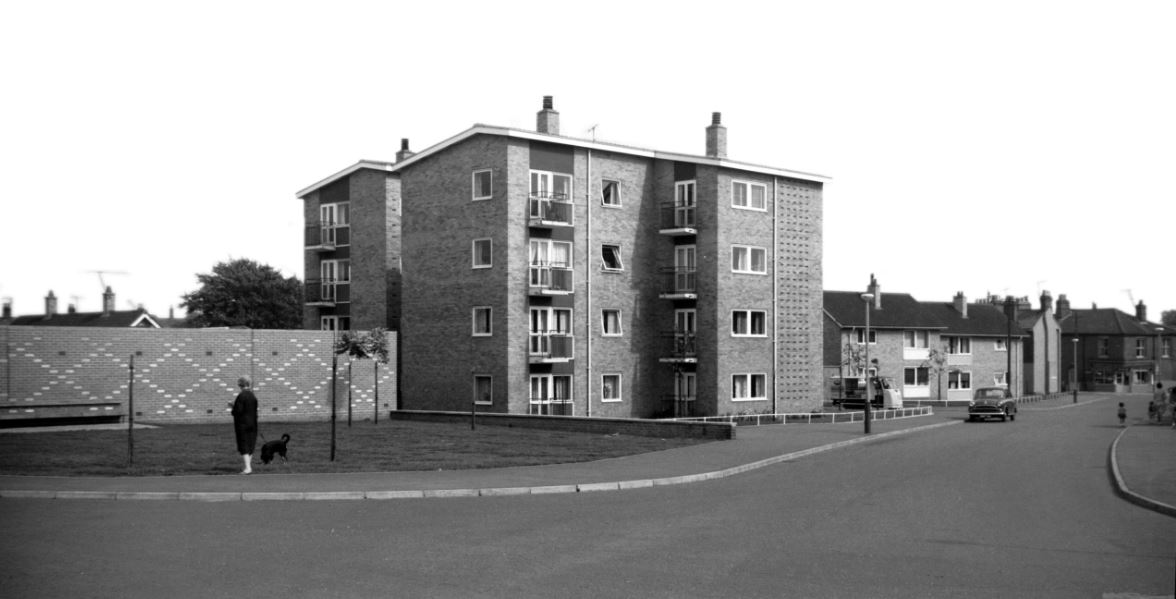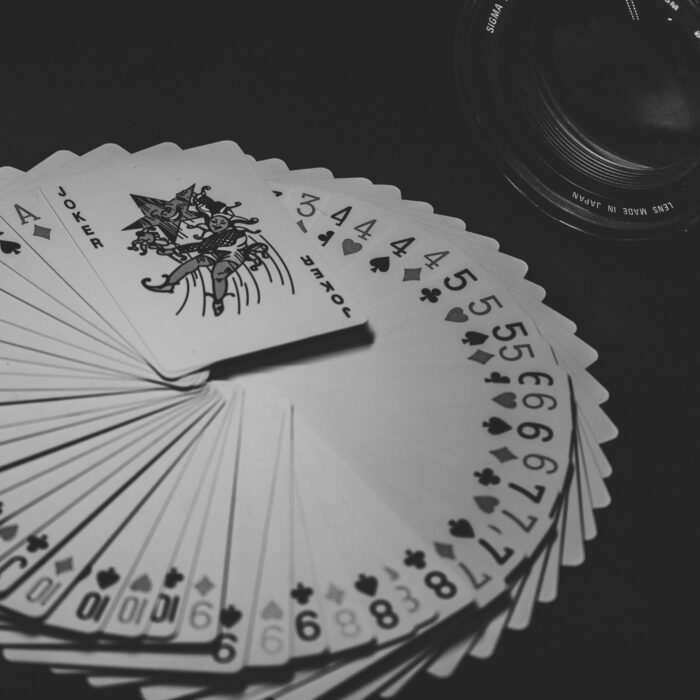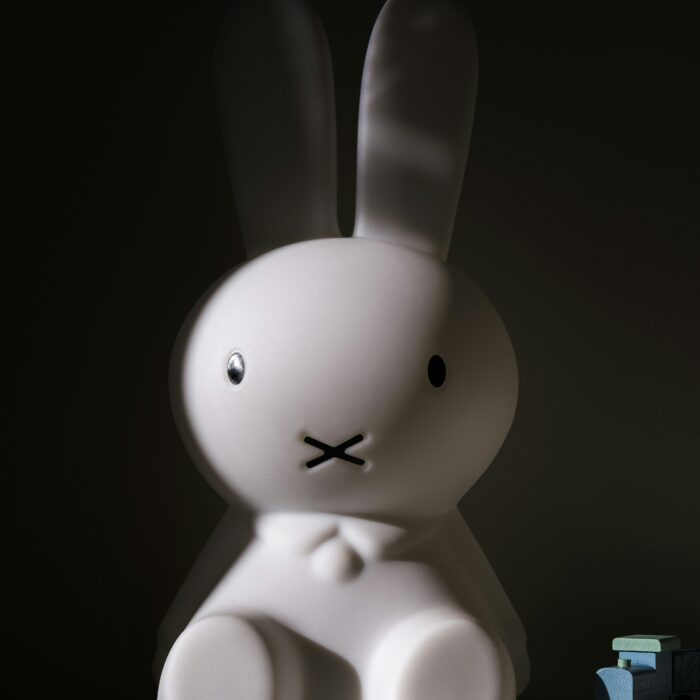You have no items in your cart. Want to get some nice things?
Go shoppingWhen I think about Ed, I end up thinking about my dad. The two have nothing in common. Ed’s a sociologist, he researches online gaming communities, looks into reasons why people spend so long constructing new identities in alternative worlds. Ed’s a childhood friend. My dad’s my dad.
Ed married a girl called Rosa in a tiny village near Krakow. The invitation arrived in the post, I bought a ticket, had a photograph I’d taken blown up as a gift. The photograph shows a man and a child walking along a forest path. On the left a football has come to rest in the long grass. The day before the wedding I told him that I couldn’t make it. He shouted at me over the phone, called me a selfish fucker. I sent the photograph off anyway.
We still talk on occasions, in the pretence that we’re friends. The other night I was telling him about the new discount food shop on the high street.
“I’ve developed a phobia of it,” I said, “It sells micro kebabs and toast-able burgers. I might buy the basics, you know, eggs and milk. But it depresses me.”
“You need to grow up mate,” Al said, “You’re like one those talent show contestants that can’t sing.”
As kids we lived at the base of a steep hill on a new build estate. And watched sand transported in on trucks, and dumped. We watched as the surrounding fields were concreted over.
The earliest memories I have are linked to the asthmatic sound of my dad’s white Datsun. He bought it five years after he’d arrived in England. When I heard it coughing into life on cold mornings, it always reminded me of a rusty saw cutting through trees. My dad always woke early, headed into his study and closed the door. I’d wake to sound of my mom’s singing. Clamber out of bed and rest my back against the radiator on the landing, and watch her carry fruit and steamed milk into the prayer room. Dad would emerge in his string vest and dhoti. He’d peer out into the corridor. And then we’d sit in front of the Hindu gods and sing. Before leaving for work, he’d always call out to mom, always say, “I’m going now, ok.”
During the day mom and I took walks through the fields. We’d stop at the farm shop, bought eggs and milk, and on the way home stop by the chip shop. We’d feed the ducks and then head home. In my memory I always remember a silence that surrounded the two of us. At around three she’d leave and head into the kitchen. I’d watch telly as the smell of frying chilli, garlic, and coriander wafted into the living room. Mom would leave her pots bubbling and bring me squash and Malted Milks. I’d eat my way around the biscuits, and present the cut outs to her. She’d laugh and eat and then laugh again.
“Rosa wants a dog,” Ed said, one day on the phone. “She’s getting lonely here. A dog, I mean we don’t have enough space to swing a cat.”
They bought a black Labrador. Ed named him Fidel. And then, a couple of months later, he told me Rosa was pregnant. They called the girl Lilly, settled down in Loughborough, where Ed found himself a teaching post. When I went to see him he’d changed. I could have predicted the faded out Wolves top, and the grass stained Adidas. However he’d abandoned his fixed stare and had his hair was neatly cut. He seemed more at ease. He took my bag from me, and we walked to the bus stop. I couldn’t have imagined that Ed from the Ed I’d once known.
I mean on the day England played Argentina in Mexico, Ed was picked to be an Argentinean. He refused, saying his dad had fought in the Falklands. But we all agreed that being picked was being picked. Ed wasn’t best pleased. He stood there and didn’t do a thing. Burt, who’d had trials for Stoke, said: “You may as well not be here mate.”
Ed just stared at him. Half way through the game Burt made a run through the defence, and was clear on goal. Ed chased him, ran the length of the green, cut through the back of Burt’s legs, two footed, like something out of Street Fighter. A crunching sound accompanied Burt’s scream. And, as he lay there, holding his left leg: Ed seized it and started moving it back and forth saying, “Give it some exercise.” A couple of days later Ed apologised with a 10p pack of Hubba-Bubba.
On the bus back Ed told me that he spent hours online playing shoot-em-ups. “My research has moved on,” Ed said, “I’m researching competitive shoot-em-ups now. You know like Call of Duty”
“Really,” I said, looking out the window at the derelict factories.
“Yeah,” Ed said, “I’ve come across this group who call themselves the Kill Squad.”
I kept silent.
“The leader calls himself Asterion. You won’t believe what he does.”
“What’s that?”
“He’s a Futurologist. Asterion actually sent me a letter in the post.” Ed said.
“I’ll show it to you when we get back.
Ed continued to talk as the bus rose up a hill and passed grey terrace houses. The occasional St George could be seen hanging from a window. He then asked me how my parents were.
“My dad still talks about returning to Sri Lanka,” I said.
“I can kind of sympathise,” Ed said, “Magda misses Poland.”
When I heard the Datsun drone down the hill, I’d clamber up the Sofa, and see Dad pull into the drive. Dad was slow when stepping out. He pulls his coat on, straightens his tie, and then paces around the house, checking the windows and flowerbeds. I’d hear mom telling me to get down, and run and wait in the hall. Through the clouded glass I’d see his crumpled figure slope into view, then straighten. The key sounds in the lock, the door opens, and grey afternoon light slants through. In my memory his face forms last. His eyes hooded, his gaze absent. When he sees me he places his briefcase down. I turn and run, but in a few large strides his shadow surrounds me. He’d lift me up and muzzle his face into mine and carry me into the kitchen. Mom would be at the stove, stirring the saucepan with a wooden spoon. She’d turn. They’d embrace. He’d undo his tie, remove his blazer, and slump down at the dining table. He’d break up the fried pilchards with his thumb and index finger, mix it with the rice and lentils, and eat. Mom would watch from the door, asking if dad wanted seconds. After that he head to his study, and leave her to watch Dallas in the lounge.
Some of the houses on Ed’s street were boarded up. Others gutted shells with scaffolding clinging to them. A gang of kids hung about on the corner. Ed pushed open the front door on to a small square room. Books were shelved on three sides. He took me through to the lounge, and then up the stairs to his study. In the left corner, by the window, there was a cot. A dream catcher hung above it. Strings of multi-coloured Chinese lanterns criss-crossed the ceiling.
“That’s where the magic happens,” Ed said, pointing to his dusty PC.
He rummaged through the drawer, pulled out an envelope. The letter was written on beige water marked paper, and as I read it, Ed pulled up the swivel chair and sat me down. He accessed his You-tube account and showed me footage from a gamer tournament he’d played against a crack team of South Koreans. He’d titled it Bull Head Baudrillard’s war on Terrapins.
“The South Koreans are treated like super stars. They get very well paid,” Ed said.
I watched Ed avatar run around Rambo style, caring very little about if he got shot. He picked off gamer after gamer: gamers called Bruce Lee and Monkey King and Pac Man. They died and they came back to life, and he did it again. He used the butt of his rifle, a rock to the jaw, a hammer.
“You get more points the more inventive you are.” Ed said, with his head moving up and down, his legs swaying from side to side.
Ed slowed the action as red pixels exploded across the screen. And although Bullhead Baudrillard was not Ed, it seemed somewhere deeper down was the younger Ed trying to slough off his adult self.
“What’s with the name,” I asked.
“Asterion said my initial name wouldn’t do.”
“What did you want to call yourself?”
“Steve Bull,” Ed said.
We went out onto the patio and sat smoking fags and drinking Becks.
“Do you remember when we bunked school?” he said, laughing, “I mean, how stupid was that, thinking we could get away with it.”
That day we hid in the wardrobe and pretended the telly wasn’t on, Ed’s dad made him break his Mega-drive with a hammer. I mean that was hard.
“What did your dad do?” Ed asked.
“Oh you know,” I said, “I mean, what any dad would.”
I didn’t tell him what dad really did that day, didn’t say that he scooped up rice and lentils with his hands, that he went upstairs and took off his work clothes. That he changed and then came down the stairs with his black belt. Looked at me, and then my mother, and then, well, then, started crying, saying: “I didn’t come to this country so you could just mess around with your friends.” I didn’t tell him, because I knew he wouldn’t have understood that.
When he heard the front door, Ed stubbed his fag out, and pushed the ashtray towards me. The Labrador bounded out of the patio door, stood staring, and then ran over to me. It placed its paws on my knees.
“Fidel’s slightly confused,” Ed said, “You’d expect him to be in love with Lilly or Rosa, the silly fool believes he’s in love with me.”
Lilly came out cradling a football, and dropped it. It rolled three feet. Ed stood up and passed it back to her. Lilly crouched down and picked it up. Rosa appeared at the door, and then asked Ed to help her with the groceries. Lilly and Fidel followed as I sat at the patio table. I watched him in the kitchen, pulling frozen food from large Iceland bags, and realised Ed was happy, happier than I could ever have been. The time that had passed, and the lives we’d lived at the base of that steep hill, was gone. That I’d continued to move from town to town, job to job, just as he’d held up everything that was expected of him, I realise, has everything to do with my Dad’s white Datsun.






beautifully written! light and layer, a pleasure.
That photograph is still on my wall in the hall, Vim. It takes pride of place because people always ask about whether it was a commission or if I took it. I couldn’t take a photograph like that, I don’t have the patience or the eye for it.
It’s good to see you getting your work out there, but know that I see your work every day and it always reminds me of you, for better or worse.
Get in touch if you want to hook up. We all still remember you . . .